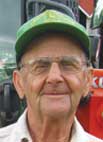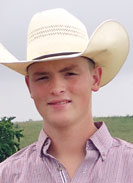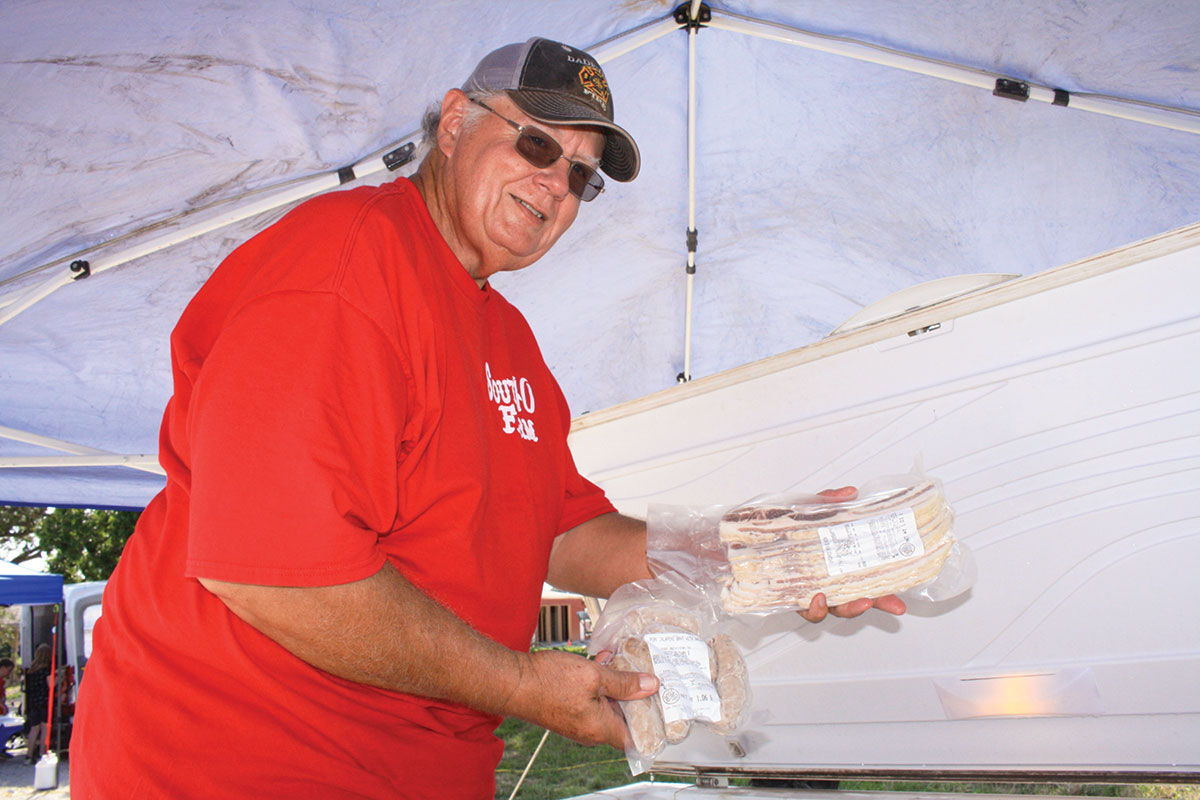
When Earnest Smith, 78, of Summersville, Mo., steps up into his climate controlled cab tractor, his thoughts must often go back to a different time and a different way of doing things. After all, his farming experience spans eight decades and a lifetime of change.
Today, Earnest and his wife Bonnie live on a 360-acre farm that straddles the Texas and Shannon County line. Their son Larry also has a farm a few miles away and together they run around 175 cow/calf pairs on both farms.
There is a quaintness to Earnest and Bonnie’s home and yard. Old-fashioned hollyhocks are blooming and there is a well-tended garden behind the house. Their garden contains a variety of vegetables. “We always put out a big garden and can a lot,” Bonnie said. Only a casual look around their property and one can see that the Smith’s are from a more self-sufficient generation. A generation that was self-sufficient out of necessity. Earnest was born in a three room house with five brothers and two sisters, one which died in infancy.
“I was considered the farm boy,” Earnest said with a chuckle. As he looks back over his life he added, “I’ve done a little bit of everything. When I was just a little kid my dad worked for the AAA (Agriculture Adjustment Act) Program for several years,” he said. The AAA program, along with the CCC (Civilian Conservation Corps) were part of President Roosevelt’s New Deal Programs of the 1930’s.
“When I was about nine years old, I helped put up hay and wheat.” Earnest recalls this childhood job, working for a neighbor that paid 50 cents a day. “When I was 8 years old I drove a team and worked ground. I plowed corn with a double-shovel when I was about nine years old,” he said. Earnest remembers his dad buying mule colts, keeping them for two years and breaking them to work. He would then sell them to cotton farmers in southeast Missouri. Earnest also recalls a childhood memory of he and his dad working a team of horses.
“He had a binder and cut wheat and oats for people with the binder,” he said. They would work a four horse or mule team and Earnest would ride a mule to help his dad guide the team. “That was a pretty hot job when them old mules got to sweating and you were sittin’ up there riding ‘em,” he said with a smile.
As late as the 1930’s many of the farms in southern Missouri were still free range farms with no fences on them. Earnest remembers his uncle raising hogs on a free range farm. They watered from a spring and the hogs’ main diet consisted of acorns.
“In the middle 50’s, dad went to auctioneering school to be an auctioneer,” he said. Earnest and his dad had farm sales for a while and eventually owned their own sale barn. As an extension of the sale barn, Earnest began to haul cattle, feed and hay for other people. Eventually this led to hauling tractor trailer loads of hay from Oklahoma, Kansas and Illinois.
“We got into hauling feed to cattle in the late 70’s. We fed cattle in Dodge City, Kan., at Winter’s Feed Yard.” Earnest also named several other feed lots he hauled feed for over the years.
Earnest’s dad also taught him to be an auctioneer. This took him to sale barns across the state and into Arkansas. He auctioneered at Licking, Popular Bluff, Sedalia, Warrensburg, Alton and Ash Flat, Ark.
Along with the cattle that Earnest and Bonnie have always had, they also raised hogs and sheep. They owned around 100 ewes at one time. Their farm was also considerably larger but they have since sold much of the land.
As he approaches 80 years old, Earnest has had to simplify his farming quite a bit. He lets his bulls run with the cows all year long, and this past hay season he decided to turn most of the haying over to someone else. He now has his hay as well as the combining put up on halves due to some health problems he has recently had.
“I know what it is to work and provide for a family,” Earnest said with a certain pride in his voice. From young children of the Great Depression, to farming in the new millennium, Earnest and Bonnie know the perseverance it takes to make a living and a life on the farm.







